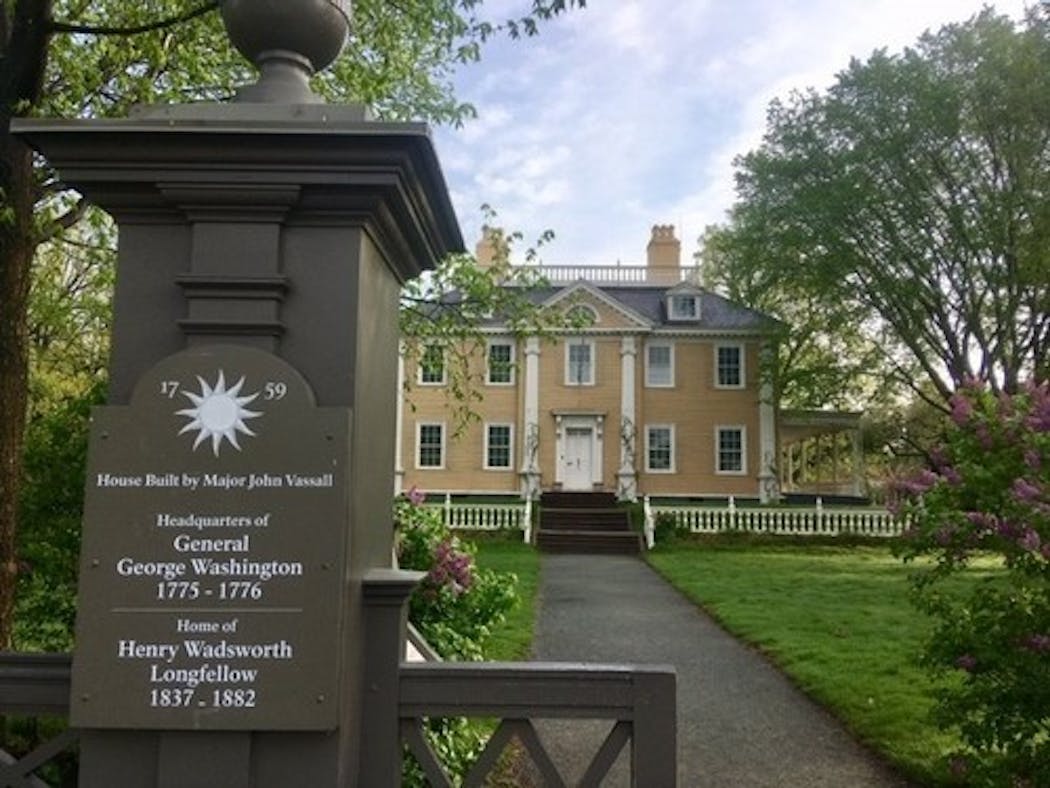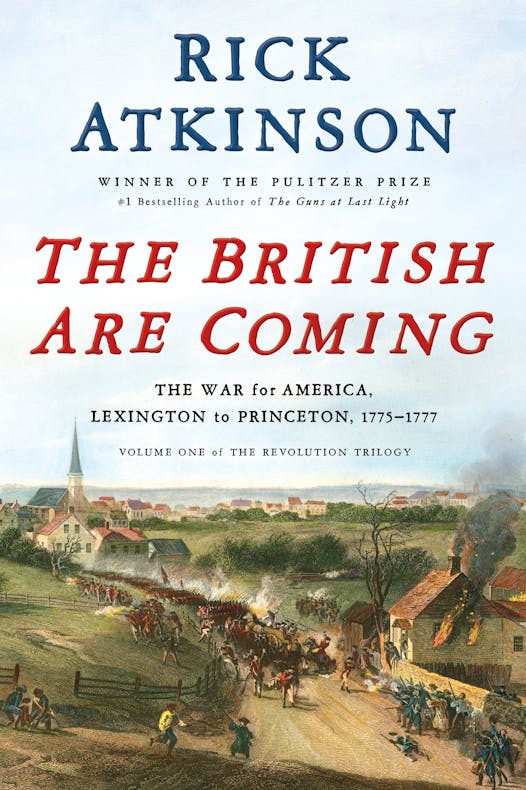July 4th is considered the nation's birthday, the anniversary of the day in 1776 when the colonies told the world they had had enough of Great Britain and would take their own chances, thank you very much.
But the 4th would be largely forgotten today if not for another date a few months later — Dec. 26, 1776 — when George Washington and his thin and ragged ranks shocked British-paid mercenaries in Trenton after crossing the icy Delaware River. The Hessians surrendered and the torch that had been lit in Philadelphia on July 4 continued to flicker.
As award-winning author Rick Atkinson tells the story in "The British Are Coming: The War for America, Lexington to Princeton, 1775-1777," his cinematic first volume of three narrative histories planned on the American Revolution, the odds were stacked mightily against the rebels.
Not only had no colonial uprising ever succeeded, but the Americans also were striking out against the world's most powerful nation.
This is, first and foremost, a military history. Congress enters the picture mainly in giving Washington the task of knitting together an army from among 13 querulous colonies. Atkinson devotes a chapter to King George III (the author spent a month at Windsor Castle combing his papers, courtesy of the queen herself) and another to wily Ben Franklin, working his fulsome charm in Paris to win French aid for the American cause. But the action here is about sweaty soldiers on battlefields like Concord and Moore's Creek and Harlem Heights, not bewigged orators in colonial assembly halls.
Bringing the Revolutionary War out of the shadows may well require a writer with Atkinson's superb skills, displayed with such power in his acclaimed World War II trilogy. The war for independence has lost ground in the national imagination to the Civil War, a struggle between brothers memorable for its sheer barbarity, photographic record and issues of equality and states' rights that still resonate today.
Even so, the Revolution lasted eight years, twice the length of the Civil War, and cost the lives of 35,800 Americans, with the deaths divided about equally among battle, imprisonment and disease. For Americans, winning this war was never a sure thing.
The book's singular figure is George Washington, whose perseverance and capacity to act boldly made up for what he lacked early on in experience. When he became general of the American forces it had been nearly two decades since his time commanding the Virginia Regiment. But if he was rusty on tactics and showed occasional indecision, he was a dogged leader who grew rapidly as a general and proved to be a gifted political administrator. His calm mien and charisma inspired the mechanics, farmhands and shopkeepers who populated his army.
Washington understood that the colonies could not win by directly confronting the British. The best strategy was to wear them down, fight on their own terms and then retreat. "The British, after all, had to win the war; the Americans only had to avoid losing it," Atkinson writes.
The British consistently underestimated the colonists' will and resources, failing to understand both colonial resentment of their bullying and the growing American dream of a continental republic founded on equality under law (for some, anyway) rather than royalty. The colonies numbered 2.5 million people and were growing four times faster than England. Many more white American males owned land and could read and vote than Englishmen.
The book culminates in the crossing of the Delaware, an event so mythologized that it's hard to recognize what a game changer it was. American forces had abandoned New York City, skidded through New Jersey just out of British clutches and looked unlikely to defend Philadelphia. Washington decided to throw 5,000 Americans in three forces at the Hessians in Trenton; if the gambit failed, likely the newborn nation would, as well.
"Between you and me, I think our affairs are in a very bad way," Washington wrote to his brother.
But the rout at Trenton gave renewed heart to the American cause and persuaded just enough soldiers to re-enlist to continue the fight. Moreover, Atkinson writes, it helped the general to see his men for the first time "not as military underlings and social inferiors but as fellow republicans."
The author, a former Washington Post journalist who has won Pulitzer Prizes for both reporting and history, uses carefully drawn detail to make riveting a story we think we already know. Probably one bullet in every 300 fired with unreliable muskets at Lexington found their mark, he writes: "The shot heard round the world likely missed." He notes there is little evidence to support the moving scene described by many historians of soldiers being read "Common Sense" by Thomas Paine before the battle of Trenton.
By early 1777, Atkinson writes, "Independence had been proclaimed, not secured." The revolution was far from over; five more years of fighting remained, and it would be seven years until a peace treaty was signed. That means two more superb books to anticipate from Atkinson on the long struggle yet to come.
Kevin Duchschere is an editor at the Star Tribune. • 612-673-4455
The British Are Coming
By: Rick Atkinson.
Publisher: Henry Holt, 776 pages, $40.

The 5 best things our food writers ate this week

A Minnesota field guide to snow shovels: Which one's best?

Summer Camp Guide: Find your best ones here

Lowertown St. Paul losing another restaurant as Dark Horse announces closing




